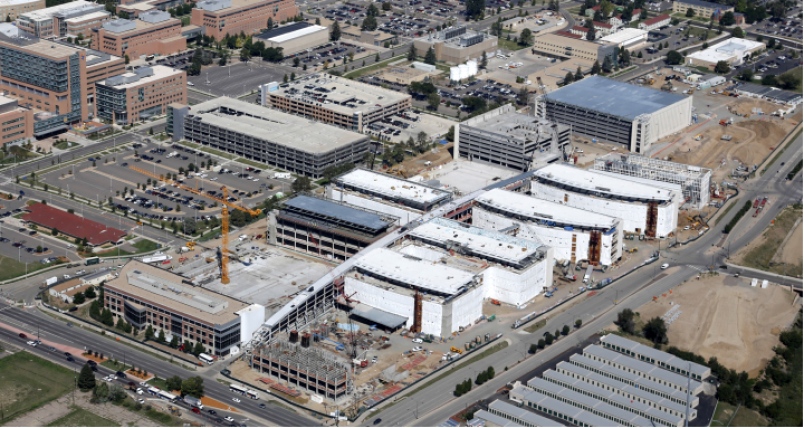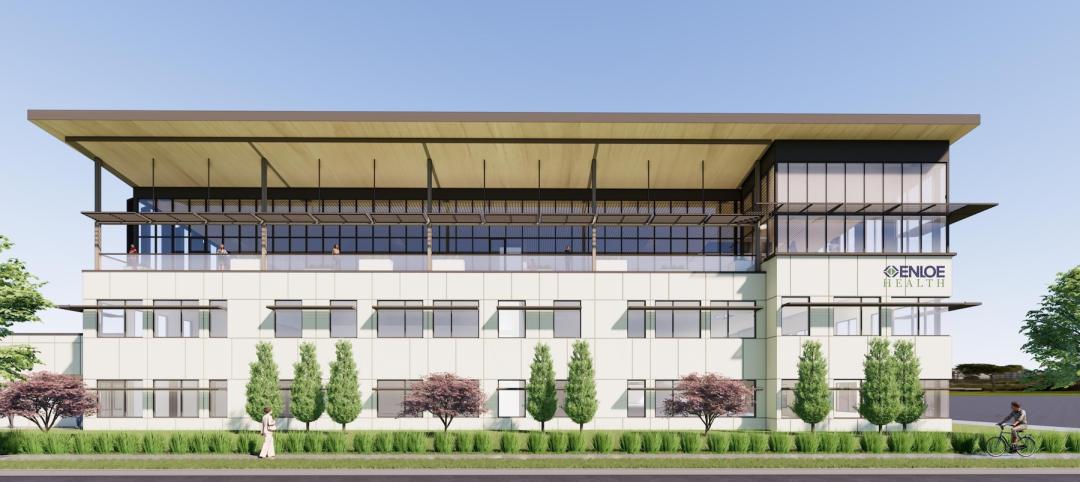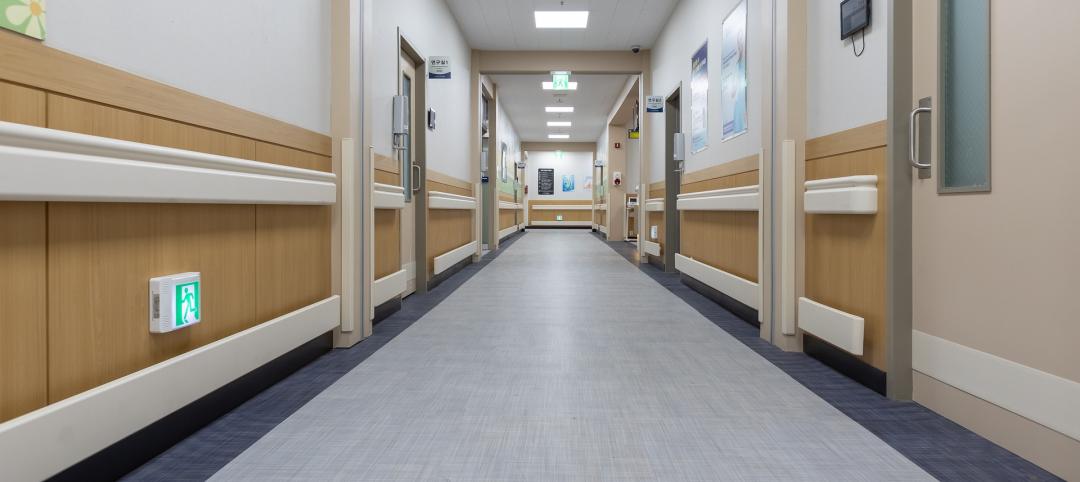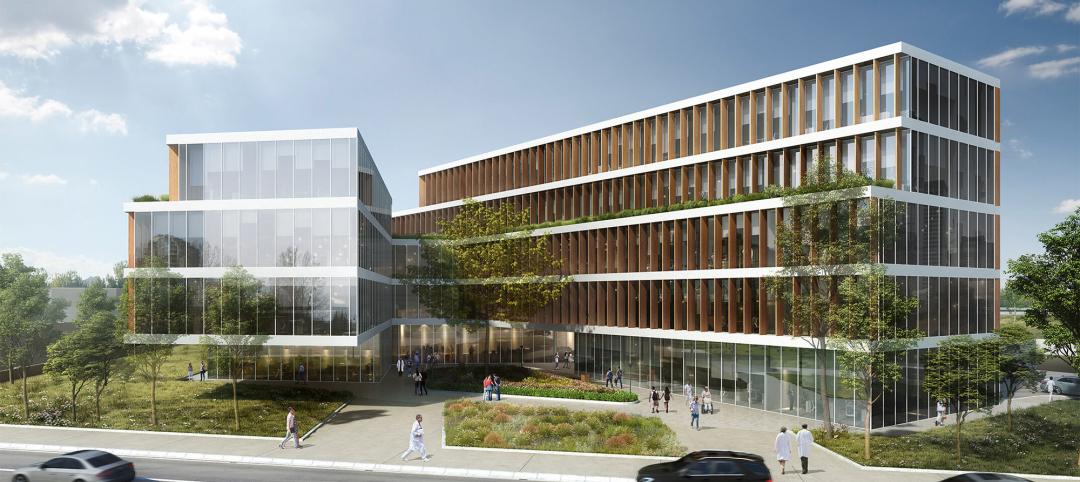Last December, the Civilian Board of Contract Appeals, a tribunal within the General Services Administration, found that the Department of Veterans Affairs (VA) was in material breach of a contract with Kiewit-Turner—a joint venture between Kiewit Building Group and Turner Construction—on the massive Denver VA Medical Center project in Aurora, Colo.
That project was already years behind schedule and hundreds of millions of dollars over budget. Upon that ruling, Kiewit-Turner—which has been on this project since 2010, when it broke ground—stopped work on that project, which at the time was somewhere between 40% and 60% complete, according to the Denver Business Journal. Work resumed just before Christmas only after VA and Kiewit-Turner signed a $234 million bridge-loan agreement.
The Board stated in its decision that the VA had repeatedly failed to provide a design for the hospital that could be built for the original agreed-upon price of $604 million. The VA, according to the Board, also disregarded cost-cutting suggestions and warnings that the project’s ambitions would greatly exceed its budget.
In fact, in the spring of 2013, The Government Accountability Office (GAO) had issued a report that found the Aurora project and three other VA projects were all drastically over budget and behind schedule.
The 182-bed medical center was supposed to be completed early this year. Kiewit-Turner, in June 2013, estimated that the construction cost would actually be $1.085 billion. (At that time, Glenn Haggstrom, who managed VA’s construction projects, continued to insist the hospital could be brought in for its original budget.)
The VA’s Deputy Secretary Sloan Gibson admitted in July that his agency could not produce a line-by-line accounting that would explain the overspending.
In March, Colorado’s congressional delegation requested that the Senate Veterans Affairs committee conduct a field visit to the medical center, which was planned to serve 82,700 vets. The fear was that work would stop again without Congressional approval for the appropriation of additional funds.
Now, the project’s completion date has been pushed back to Jan. 23, 2018, and the total cost is now expected to reach at least $1.67 billion. The U.S. Army Corps of Engineers late last month awarded the construction team a $571 million contract to finish the job.
Congress had authorized up to $625 million in additional spending for this project in September, but not without strings attached, according to news reports. That approval stripped the VA of its authority on any future construction project over $100 million, which essentially would prevent the department from getting involved in hospital construction again.
The Army Corps of Engineers will henceforth serve as the VA”s construction agent on several products worth about $3.6 billion.
"We must make sure that this never happens again and fortunately, a key reform was passed along with funding. The VA is out of the hospital building business," stated U.S. Rep. Mike Coffman (R-Aurora). Coffman told Stars and Stripes that he was disappointed that the VA might not release the results of one of its internal investigations into what went wrong until next year.
Related Stories
Healthcare Facilities | May 28, 2024
Healthcare design: How to improve the parking experience for patients and families
Parking is likely a patient’s—and their families—first and last touch with a healthcare facility. As such, the arrival and departure parking experience can have a profound impact on their experience with the healthcare facility, writes Beth Bryan, PE, PTOE, PTP, STP2, Principal, Project Manager, Walter P Moore.
MFPRO+ News | May 21, 2024
Baker Barrios Architects announces new leadership roles for multifamily, healthcare design
Baker Barrios Architects announced two new additions to its leadership: Chris Powers, RA, AIA, NCARB, EDAC, as Associate Principal and Director (Healthcare); and Mark Kluemper, AIA, NCARB, as Associate Principal and Technical Director (Multifamily).
Healthcare Facilities | May 21, 2024
A collaborative delivery contract adds a new wrinkle to construction management
The setup combines traditional pact structures with a different risk-sharing approach.
Healthcare Facilities | May 6, 2024
Hospital construction costs for 2024
Data from Gordian breaks down the average cost per square foot for a three-story hospital across 10 U.S. cities.
Sponsored | Healthcare Facilities | May 3, 2024
Advancing Healthcare: Medical Office Buildings at the Forefront of Access and Safety
This article explores the pivotal shift from traditional hospital settings to Medical Office Buildings (MOBs), focusing on how these facilities enhance patient access. Discover the key drivers of this transformation, including technological advancements, demographic trends, and a growing emphasis on integrated, patient-centered care. Learn how MOBs are not only adapting to modern healthcare demands but are also leveraging modern access control and safety innovations.
Architects | May 2, 2024
Emerging considerations in inclusive design
Design elements that consider a diverse population of users make lives better. When it comes to wayfinding, some factors will remain consistent—including accessibility and legibility.
Healthcare Facilities | Apr 16, 2024
Mexico’s ‘premier private academic health center’ under design
The design and construction contract for what is envisioned to be “the premier private academic health center in Mexico and Latin America” was recently awarded to The Beck Group. The TecSalud Health Sciences Campus will be located at Tec De Monterrey’s flagship healthcare facility, Zambrano Hellion Hospital, in Monterrey, Mexico.
Healthcare Facilities | Apr 11, 2024
The just cause in behavioral health design: Make it right
NAC Architecture shares strategies for approaching behavioral health design collaboratively and thoughtfully, rather than simply applying a set of blanket rules.
Healthcare Facilities | Apr 3, 2024
Foster + Partners, CannonDesign unveil design for Mayo Clinic campus expansion
A redesign of the Mayo Clinic’s downtown campus in Rochester, Minn., centers around two new clinical high-rise buildings. The two nine-story structures will reach a height of 221 feet, with the potential to expand to 420 feet.
Products and Materials | Mar 31, 2024
Top building products for March 2024
BD+C Editors break down March's top 15 building products, from multifamily-focused electronic locks to recyclable plastic panels.

















